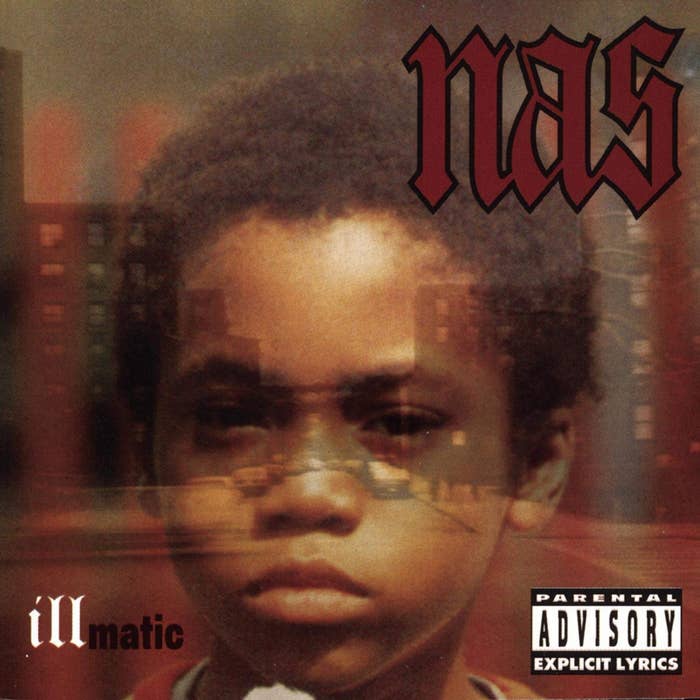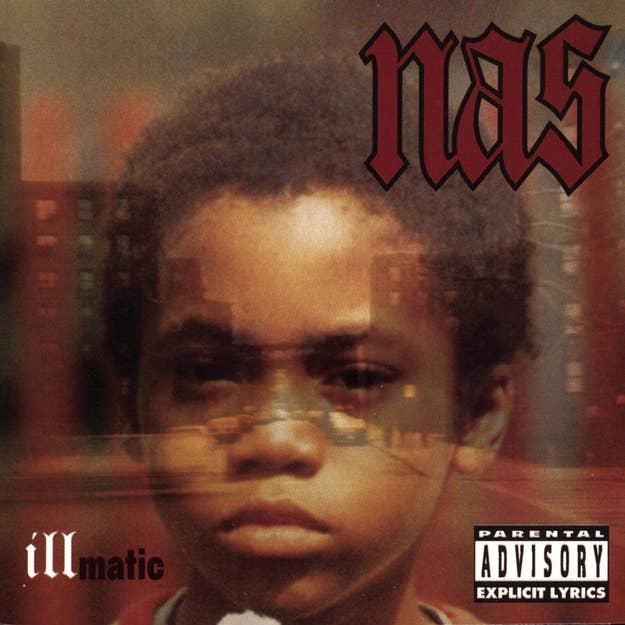
One of the greatest rap albums ever had an unintended consequence.
Written by Insanul Ahmed (@Incilin)
First and foremost, no one is saying that Nas' Illmatic is in any way, shape, or form wack. It’s probably the greatest rap album of all time. It set the gold standard for every album after it. It’s just a phenomenal piece of art. Point blank period. With that being said...
Illmatic did have one terrible lasting impact: It gave rise to the idea that rap albums would be better served with multiple producers. That lead to an overall decline in the cohesion and quality of rap albums and ushered in the era of superproducers.
Before Illmatic came out, rap albums were created the same way albums across all genres are created: With one artist or group and one producer (sometimes a team) who create a singular vision. Think about all the classic rap albums from the ‘80s: Who produced License To Ill? Rick Rubin and The Beastie Boys. Who produced Straight Outta Compton? Dr. Dre and DJ Yella. Who produced It Takes a Nation of Millions to Hold Us Back? The Bomb Squad. Take a look at the production credits of the classic rap albums immediately preceding Illmatic and you’ll see the same trend. Every song on The Low End Theory was produced (or at least co-produced) by A Tribe Called Quest. Every song on The Chronic was produced by Dr. Dre. Every song on Enter the Wu-Tang (36 Chambers) was produced by RZA.
That's the way records had always been made. Just like how writers need editors, actors need directors, and Kanye needed Jesus, rappers need producers. Real producers, not just beatmakers who send instrumentals via email with a note that says, "Good luck."Illmatic wasn't created via emails, but it certainly enabled the idea that a singular vision wasn't necessary.
“I always joke with Nas and tell him it’s his fault, that Illmatic caused a problem.” - No I.D.
Despite having only nine songs, Illmatic had five different producers: Pete Rock, Q-Tip, DJ Premier, Large Professor, and L.E.S. Despite Nas begging his mentor Large Professor to executive produce the album, Extra P was too burdened with the breakup of his group Main Source to help young Nasir all the way. That left Nas without a go-to producer. Still, his immense talent was so obvious that the most established producers in the game flocked to him. This wasn’t a bad thing per se—especially since the album’s production is immaculate—but coupled with the rise of Puff Daddy’s The Hitmen and the success of Ready To Die, people started thinking that more production hands in the kitchen made a better cake.
Next thing you knew, rap albums started having a different producer for every song. And like a film that has a different director for every scene, albums became unfocused affairs. This also meant that producers weren’t tied to artists anymore.
Every producer from The Neptunes to Timbaland to even DJ Premier was able to use this to their advantage, and started slinging hot beats to whomever had a paycheck. Rather than Primo and Nasty getting down to make a classic LP, Premier could bless Nasir with “Nas Is Like,” Nas could make it a single, and it would be all good. But as great as “Nas Is Like” is, wouldn’t you trade it in a heartbeat to get a full LP from the dynamic duo?
I'm not the only one who thinks this. Last year when I spoke to No I.D., the main producer behind Nas' well-received Life Is Good, about how hip-hop has gone astray, he pointed to Illmatic as well.
“I always joke with Nas and tell him it’s his fault, that Illmatic caused a problem,” said No I.D. “Before that, when I started doing music, there wasn’t a concept of, ‘I could work on a Public Enemy album,’ or an Ice Cube album, or A Tribe Called Quest, or Gang Starr. It was a closed issue. You didn’t submit a beat to Pete Rock and C.L. Smooth.”
That’s not all the always outspoken producer had to say.
“I really think that’s the worst thing for albums ever,” he said about albums with multiple producers. “If you look before the ‘90s, you might not find many—if any—albums with multiple producers. It just didn’t exist in the history of music. That would have been like Michael Jackson telling Quincy Jones, ‘Look man, I know we did well on Off The Wall, but I’m hot now, and I need to see some other producers for Thriller.’ It just doesn’t make sense.”
Of course, now the super producer model is the norm. When Nas created Illmatic he created a work of art so great, everyone wanted to replicate it—even if they saw the formula and took the wrong lessons from it. Sometimes the best artists have the worst influence.
RELATED: 10 Ways Nas' Illmatic Changed Hip-Hop
RELATED: 25 Photos of Illmatic Era Nas

